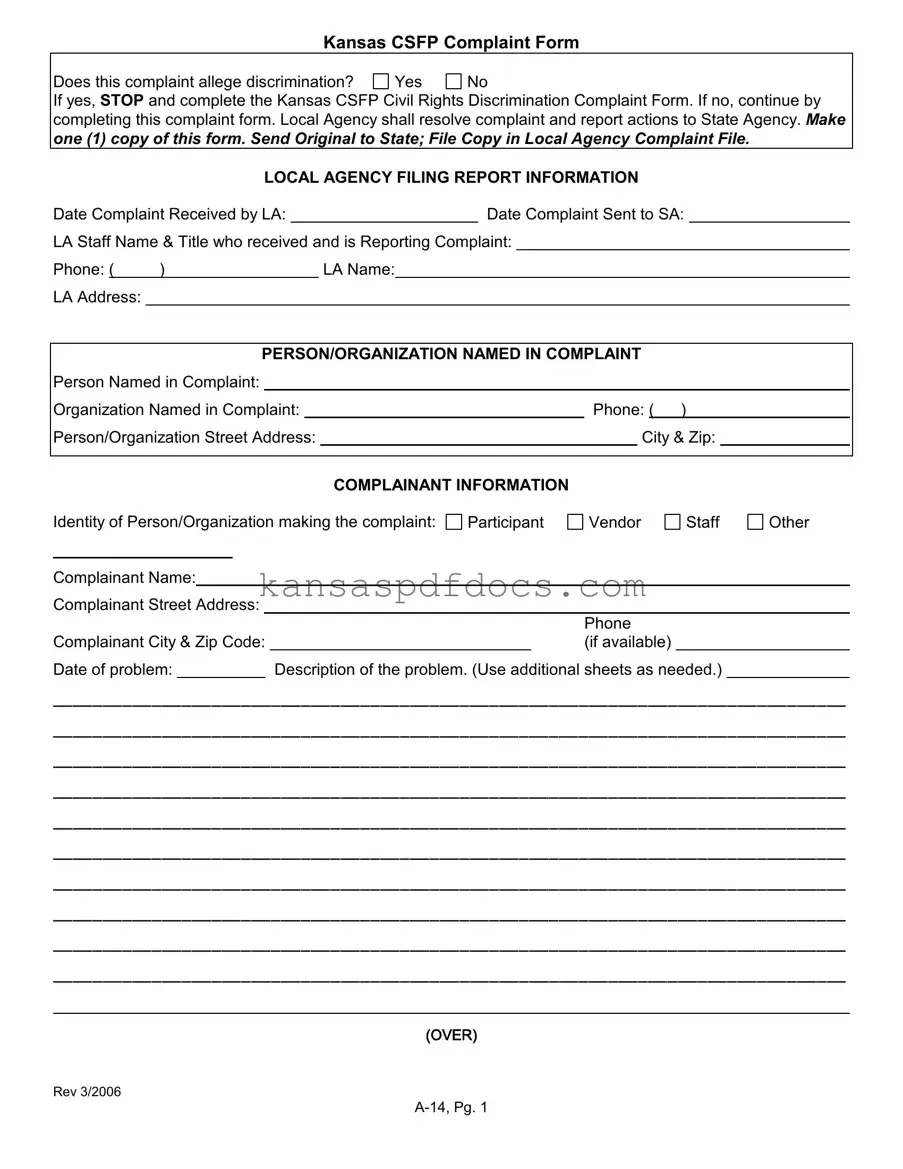Download Kansas Csfp Complaint Form
The Kansas CSFP Complaint Form is a document used to report complaints related to the Kansas Commodity Supplemental Food Program (CSFP). It is essential for individuals or organizations to complete this form accurately to ensure their concerns are addressed properly. If a complaint involves discrimination, a different form should be used instead.
Access This Form Now

Download Kansas Csfp Complaint Form
Access This Form Now
Your form isn’t ready yet
Edit and finalize Kansas Csfp Complaint online without printing.
Access This Form Now
or
Get PDF Form
